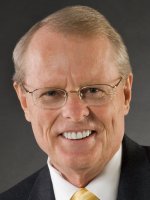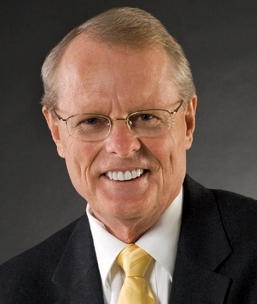In a social media world, many believe whatever they read on the internet – and accept credentials at face value. Media noise and news can be hard to differentiate.
Jim Lorenzen, CFP®, AIF®
 A long time ago – let’s not talk about how long – I was a young intern at NBC News in Washington, D.C. Besides running a lot of errands, getting coffee, etc., I did learn how a newsroom operates and, even without realizing it at the time, I was learning the difference between news and opinion as well as when and how agendas are advanced. In those days, it was about who got the last word, who got the most film (video today). Subtle stuff.
A long time ago – let’s not talk about how long – I was a young intern at NBC News in Washington, D.C. Besides running a lot of errands, getting coffee, etc., I did learn how a newsroom operates and, even without realizing it at the time, I was learning the difference between news and opinion as well as when and how agendas are advanced. In those days, it was about who got the last word, who got the most film (video today). Subtle stuff.
Today it’s more difficult to differentiate because, in addition to broadcast news, we now have cable news with it’s 24-hour news cycle. Since few, if any, have real news divisions operating across the globe and have to rely on the news divisions of independent network affiliates for domestic feeds (only the major markets have real news divisions), they are forced to fill their 24-hour cycles with either repetition or analysis. News, analysis, and opinion have become intertwined so greatly it’s hard to know which is which. Financial news is no different from mainstream news.
That brings us to the profit motive. Just as newspapers have for centuries relied on increased circulation to boost ad revenue, the media relies on ratings for the same reason. In social media, it’s clicks. It’s true in financial news, as well.
The name of the game: Clicks and eyeballs. Sensationalism and controversy sells; ‘normal’ behavior doesn’t. The media leads, the sheep follow. As long as we’re told what to think, we don’t have to think for ourselves – convenient.
Dr. Daniel Crosby, a former clinical psychologist now researching investor behavior for Orion, suggests the following tips (comments are my own):
Evaluate the source: Does the individual have the appropriate credentials, and have you verified the credentials are legitimate? Many years ago I encountered a graduating high school senior who proudly announced he’d been accepted to a college I’d never heard of but had a lot of features he liked. The name just didn’t sound like a true institution of higher learning. The student said the school was ‘fully accredited’. I suggested he find out (1) the names of the accrediting organizations, then (2) look them up to see what other institutions they also accredited. He did. He found they accredited a lot of beauty schools and the like. Relief. He had excellent grades and ended-up going to an excellent university where he graduated and is now in grad school.
Reading it on the internet satisfies some – at their peril; knowing the source is critical. You must know if the source is a real ‘doctor’ and verify validity. The ‘doctor’ or ‘expert’ you’re considering could have a criminal record, adopting bogus credentials, or have a long list of negative reviews.
Question the melodrama: The four greatest motivators are fear, gain, pride, and imitation. Sensationalism sells and fear is the greatest motivator of all. It gets eyeballs. It gets clicks.
Examine the tone: Real news answers who, what, where, when, why, and sometimes how; but, if you hear loaded language or attacks, you’re more likely hearing agenda than real news. Legitimate news organizations clearly separate news from opinion and even have internal processes to ensure the separation. This doesn’t mean agenda aren’t advanced – often it can be more subtle: who gets the ‘last word’ or who gets the video coverage.
Consider motive: Remember, eyeballs and clicks are money. News anchor bonuses are based on both. Why do you think many newscasts begin with “Breaking News”, only to hear about a story that’s 10-15 hours old?
Check the facts: If something is being presented as fact, what source or research was used for validation? I was lucky enough to have some great professors during my school days. One of the best used to say, “Questions are the beginning of education”. If you don’t ask, you never get the answer. Critical thinking is how we learn. Blind acceptance of things we see or hear often takes us down the wrong path, and the wrong path never takes us where we need to go.
Caveat: Caution is good; as long as it doesn’t lead to paralysis. The right questions, however, can help point the way.
Jim
————————————
Schedule your complimentary “good fit” 20-minute introductory phone call here!

Jim Lorenzen is a CERTIFIED FINANCIAL PLANNER® professional and An Accredited Investment Fiduciary® in his 21st year of private practice as Founding Principal of The Independent Financial Group, a fee-based registered investment advisor with clients located in New York, Florida, and California. He is also licensed for insurance as an independent agent under California license 0C00742. IFG helps specializes in crafting wealth design strategies around life goals by using a proven planning process coupled with a cost-conscious objective and non-conflicted risk management philosophy.
Opinions expressed are those of the author. The Independent Financial Group does not provide legal or tax advice and nothing contained herein should be construed as securities or investment advice, nor an opinion regarding the appropriateness of any investment to the individual reader. The general information provided should not be acted upon without obtaining specific legal, tax, and investment advice from an appropriate licensed professional.








